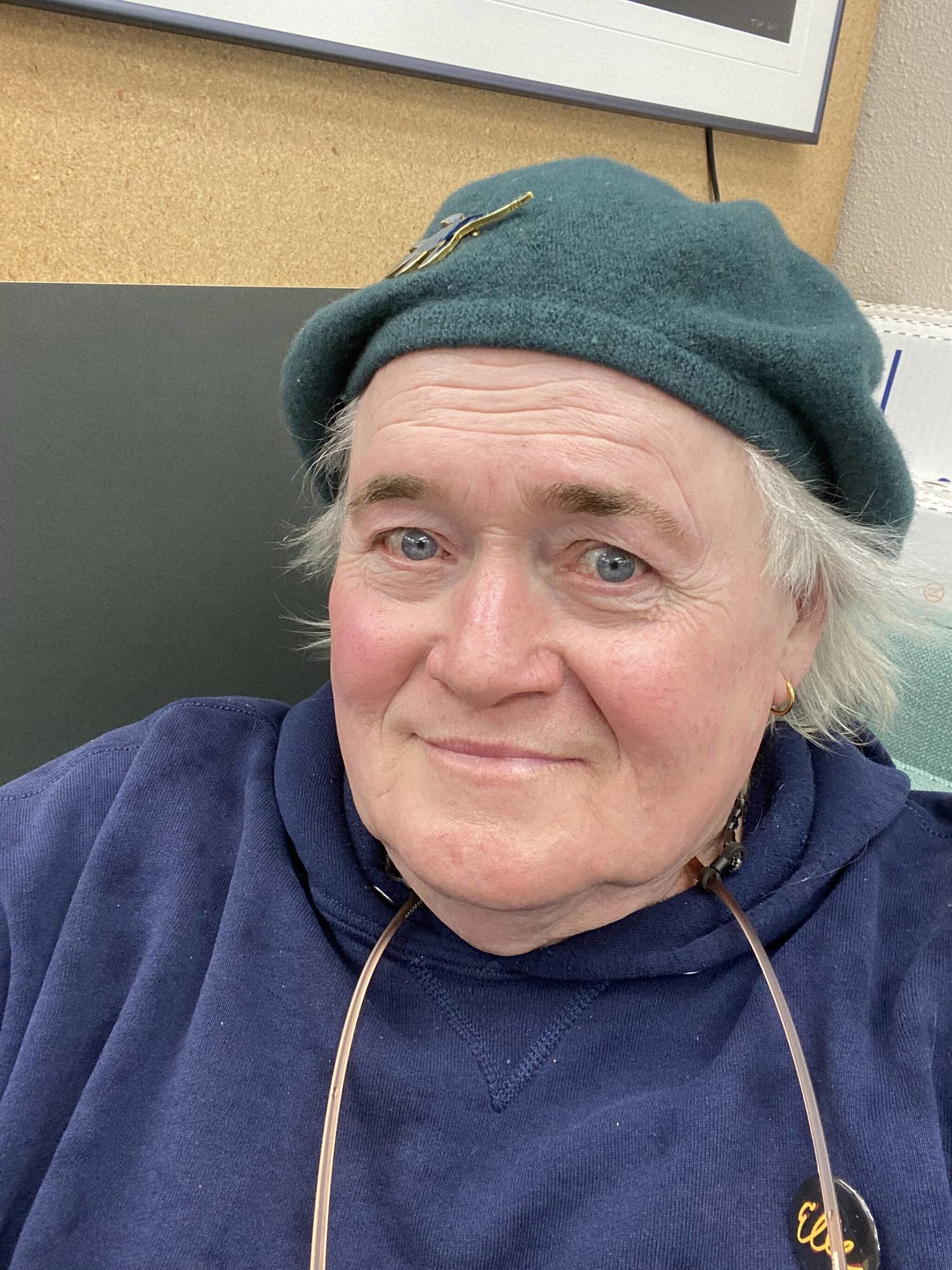Anyone who’s ever had a heart
Wouldn’t turn around and break it
And anyone who’s ever played a part
Wouldn’t turn around and hate it.
I will be traveling abroad soon, and I feel a little apprehensive about traveling androgynously. I have a new passport issued under my new name, and the State Department now offers passports in three flavors, M, F, or X, but cautions that the non-binary gender designation X may not be seen as valid in some countries. To not cut myself off from potential destinations, I went with F, as befitting a Jane.
But I don’t look like a Jane or sound like a Jane. This makes for difficulties.
During a brush with COVID this past summer, I had some groceries delivered curbside at Safeway. I parked in the designated spot, opened the hatchback, and stood outside the car waiting. When the attendant came out with my groceries, he looked at the name on the order, looked at me, looked at the order again.
I said, “yes, I’m Jane.”
“Dave?”
“Jane.”
“Dane?”
“No, Jane.”
“James?”
I hyper-enunciate and spell it out: “JANE. J-A-N-E. Jane. I’m the one you’re looking for.”
“Jane? Jane??? Oh like a boy named Sue.”
One time I walked into a shop here in town and the shopkeeper asked “Can I help you, ma’am?” I wanted to kiss him. I don’t lean that way, but he deserved a smooch.
Lately, I toy with looking a little more androgynous, a little more ambiguous. I wear a hat to hide my bald spot, I got my eyebrows waxed. It feels like rearranging deckchairs on the Titanic, but hell, I’m almost 70 and still exploring myself. I am persistent, if nothing else.
Eight months ago when I started writing this column, I announced that I was coming out as “perpetually unresolved … coming out as myself.” The problem is that our culture wants to force us into one box or the other, masculine or feminine, man or woman — boxes that objectively have nothing to do with the masculine or feminine reproductive systems.
(The fact that men and women play different roles in reproduction means one thing only: that we play different roles in reproduction. Extrapolations beyond that are just a shell game from that Penis Gallery, the patriarchy.)
It’s a delusion that there are only two varieties of human beings, a delusion we sustain only by objectifying each other, seeing each other as objects, not as infinitely complex selves, subjective individuals.
In one of my first columns I mentioned Freud’s conclusion that because female psychology is based on envy of male genitals, women are therefore incapable of a sense of justice. The good Viennese doctor comes in a long line of men who define woman by the ways in which she is not like them.
What is a woman? Not a man, says Western Philosophy. As Simone de Beauvoir first observed, philosophers have systematically defined woman relative to man, never in relation to herself. She is “a deformed male,” “an imperfect man,”“a female by virtue of a lack of qualities.” Deprived of any positive defining nature and ultimately of her selfhood, she is always the Other, nothing but an object, and not a very good one at that. “A man would seem a coward if he had only the courage of a woman” (says Aristotle, who obviously never met Liz Cheney).
Yes, a woman is not a man. But a woman isn’t even a woman — that is, we can’t define any given individual as categorically this or that gender according to their reproductive roles without demeaning her or his individuality, that uniqueness that makes you who you are. This is a fundamental principle of 20th-century continental philosophy: the genre is a construct, a fiction.
Without mentioning the good Viennese doctor’s name, Beauvoir refutes his conclusions about female psychology simply by defining justice as social rather than psychological. It’s not who we think we are that makes us just or unjust; it’s how we see and treat others.
Justice, Beauvoir argues, is predicated on the recognition that we are each a subjective self, everyone of us just like you. The human race is a bunch of I’s, each one standing in relation to each. “All real life is encounter,” a meeting of selves, writes Martin Buber.
In Beauvoir’s terms, technically speaking, there is no objective “other.” It’s a particularly pernicious delusion to think that there is. And it’s an injustice.
We all know what it’s like to have a heart, to play a part, to be a self always changing, trying to figure things out. You would think it would be easy for us to see the subjective selves in other people. Why it’s not, why we continue to treat each other as objects, is as grave a philosophical question as there is.
But sometimes it’s tough just seeing oneself as a self, getting clear of the morass of cultural conventions like gender that we let define us by default. With my upcoming travel, I’m going to travel as myself, like a Jane, whatever a Jane might be.
And since I will be traveling, I’m going to take a short break from writing this column. But I’ll be back in December. Talk to you then.
• Jane Hale lives in Juneau with her partner and their two dogs.

